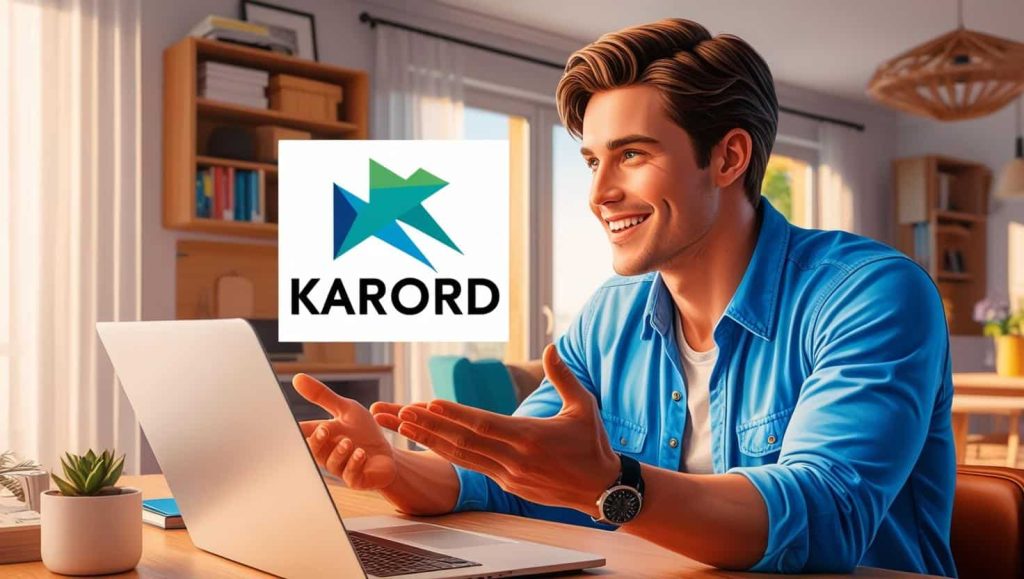
15 Golden Tips for Building Trust Between Employers and Freelancers in Online Projects
Hello to all the friends and dear companions of the global website for requesting and offering services in any field, KARORD. I hope you’re doing well! I’m here with another educational article, hoping it will be useful for you. Without further ado, let’s dive into the article. I’d be grateful if you could share your opinions and suggestions with me!
In the freelancing world, where employers and freelancers often don’t meet face-to-face, trust is the key to the success of any project. Without trust, employers can’t feel comfortable paying, and freelancers won’t have peace of mind about secure payment. In this article, we’ll explore 15 golden tips for building trust between employers and freelancers in online projects.
Transparency in Communication
One of the most important factors in building trust is transparency in communication. Both the freelancer and employer need to clearly explain what they expect, what they can deliver, and by when. Before starting the project, it’s best to have a detailed discussion via an online meeting or through messaging platforms provided by platforms like KARORD. Ask questions whenever something is unclear to avoid any confusion.
In complex projects, transparency means discussing even the smallest details. For example, if an employer has a slight change in the design, they should inform the freelancer. Likewise, if a freelancer encounters any delay, they should promptly inform the employer so both parties can plan accordingly.
Digital Transformation in the Service Industry: How to Stay Updated
Sign a Written Contract
Think of a contract as a form of insurance. It clearly outlines everything: from the scope of work to deadlines and payment terms. This way, both parties can have peace of mind, knowing what to expect. A written contract ensures that if any disputes arise, there’s a reference point, and both parties remain committed to their obligations.
When we say written contract, we mean a formal and detailed document. It should include specific timelines for each phase, deliverable details, payment terms, and even conditions for contract termination. Using platforms like KARORD, which facilitate the creation of standard contracts, can make this process easier.
Use Reputable Platforms

Platforms like KARORD, which offer secure payments, greatly enhance trust. Why? Because the employer’s money is held by the platform until the freelancer delivers the work. This gives both parties a sense of security. Additionally, rating and feedback systems on these platforms help users make informed choices.
Reputable platforms usually have arbitration systems that help resolve disputes quickly. They also offer features like internal messaging and project tracking, which enhance transparency.
Deliver the Project in Phases
Delivering a project in phases is one of the best ways to build trust with employers. When a project is divided into several parts, and each phase is approved before moving on to the next, trust grows, and the work progresses more smoothly. For instance, if the project involves website design, start by delivering the initial layout before proceeding to the next stages.
This phased approach reduces the likelihood of major revisions and ensures that the employer feels involved in the process. Moreover, it allows for quicker issue resolution.
Provide and Receive Continuous Feedback

At every stage of the project, both the employer and freelancer should provide constructive feedback. This improves the workflow and makes both parties feel they are working with a professional.
Continuous feedback means not only at the end of each phase but also during each part of the project. This way, potential issues are addressed early, avoiding major changes later.
Difference Between B2B and B2C Services: Which One is Right for Your Business?
Present a Strong Resume and Portfolio
If you’re a freelancer, having a solid resume and a strong portfolio can significantly boost an employer’s confidence. When employers see that you have successfully completed similar projects before, they’re more likely to trust you. Ensure your profile on platforms like KARORD is complete and showcases relevant samples of your work.
To strengthen your resume, mention your skills along with any relevant certifications. Explain your role in each project and how you contributed to its success. Using simple and honest language in your resume helps build trust.
Build a Complete and Professional Profile

Your profile on freelancing platforms is like your online business card. The more complete and professional it is, the more it can instill trust in potential employers. A good photo, clear descriptions of your skills, and a list of past projects can make a significant impact.
A professional profile should not only include general information but also detailed descriptions of the services you offer, pricing, collaboration methods, and timelines. This helps employers make informed decisions.
Respond Promptly
Nothing is more frustrating than delayed responses. Being quick to respond shows that you value the work and helps build trust. Prompt communication conveys professionalism.
Prompt response doesn’t mean being available 24/7. Instead, set specific timeframes for responding and communicate them to the employer. This way, expectations are managed, and you can focus on your work.
Respect Deadlines

Time is gold, especially in online projects. Meeting deadlines builds trust. Employers will trust you more if you consistently deliver on time. Similarly, employers who pay on time motivate freelancers to work better. Always factor in some buffer time to handle unforeseen issues and ensure timely delivery.
Respecting deadlines doesn’t just mean final delivery. It involves meeting interim deadlines and promptly informing the employer in case of any delay.
Honesty in Collaboration
Honesty goes a long way in building trust. If a problem arises or if you can’t deliver on time, it’s better to be upfront about it. This way, the other party knows they are dealing with a trustworthy professional.
If you’re a freelancer and feel that a project is beyond your capability, it’s best to communicate this early on. Honesty shows professionalism and increases trust.
Establish Effective and Friendly Communication

Good communication significantly impacts trust. When freelancers and employers maintain a friendly relationship, they can solve problems more easily and complete the project successfully. This involves being respectful and polite in all interactions.
Effective communication means listening to the other party’s opinions and responding promptly. If any misunderstanding arises, address it quickly by discussing it.
Maintain Quality in Work
If you want to build trust, you must always prioritize quality. When an employer sees that you care about delivering high-quality work, their confidence in you increases. Pay attention to details and strive to deliver the best results.
To maintain quality, thoroughly understand the employer’s requirements before starting the project. Use professional tools and seek continuous feedback to improve the quality of your work.
Consistently Follow Up on the Project

Another effective way to build trust is by consistently following up on the project. This means regularly checking in with the other party to see if they are satisfied with the progress or if any changes are needed.
Consistent follow-up involves updating the employer on the project’s status and promptly notifying them of any issues. For example, if a task is due on a specific date, send a reminder a few days in advance.
Provide Detailed Reports
Providing periodic and detailed reports on the project’s progress helps build trust. It keeps the employer informed about the project’s status and how much work has been completed.
Detailed reports should include a summary of completed tasks, any potential issues, and the next steps. This way, the employer feels reassured that the project is on track.
Make Timely and Regular Payments

Timely payment from the employer is crucial for trust-building. When freelancers see that payments are made on time, they work more motivated, resulting in higher quality. On the other hand, freelancers should also fulfill their financial commitments, such as paying for tools or materials promptly.
Regular payments mean not just the agreed-upon amount at the end of the project but also any interim payments during the project. Using secure payment systems like KARORD can make this process safer and easier.
Conclusion
These were 15 golden tips for building trust between employers and freelancers. By following these tips, you can ensure the success of your projects and enjoy long-term collaborations. On the KARORD platform, by adhering to these practices, you can have a safe and professional partnership.
Survey
Your opinion is very important to us! 😊 Did this article help you better understand ways to build trust between employers and freelancers? How has your experience been in online collaborations? If you have any tips for improving trust in these collaborations, we’d be happy to hear from you!
Thank You
Thank you for taking the time to read this article. We hope your projects are always successful, and your collaborations are filled with trust! We look forward to your feedback and experiences. 🌟👇



پاسخ شما به دیدگاه